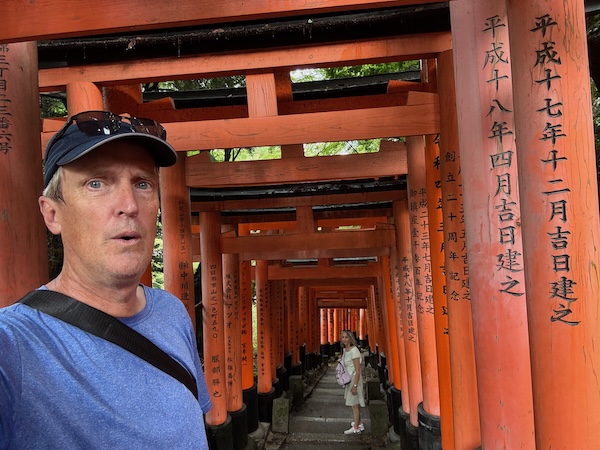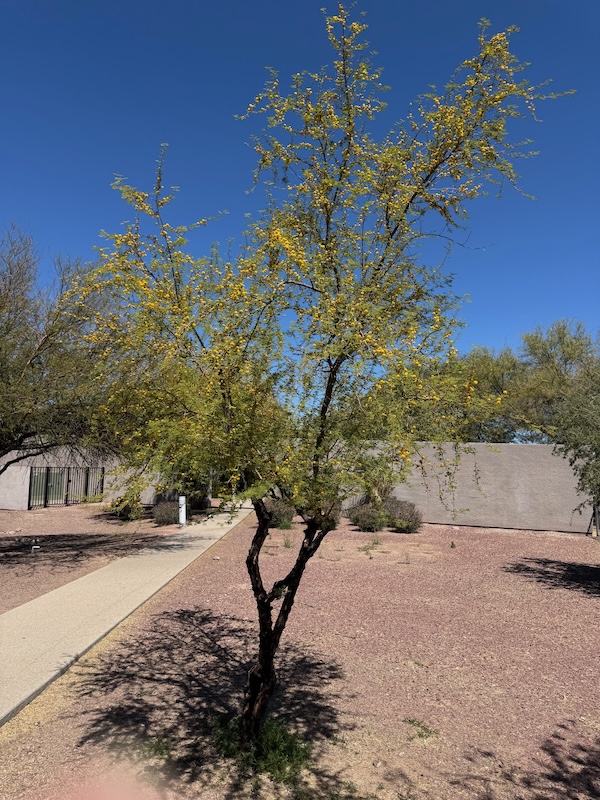When a quiet moment in Starbucks becomes a reminder of what we carry
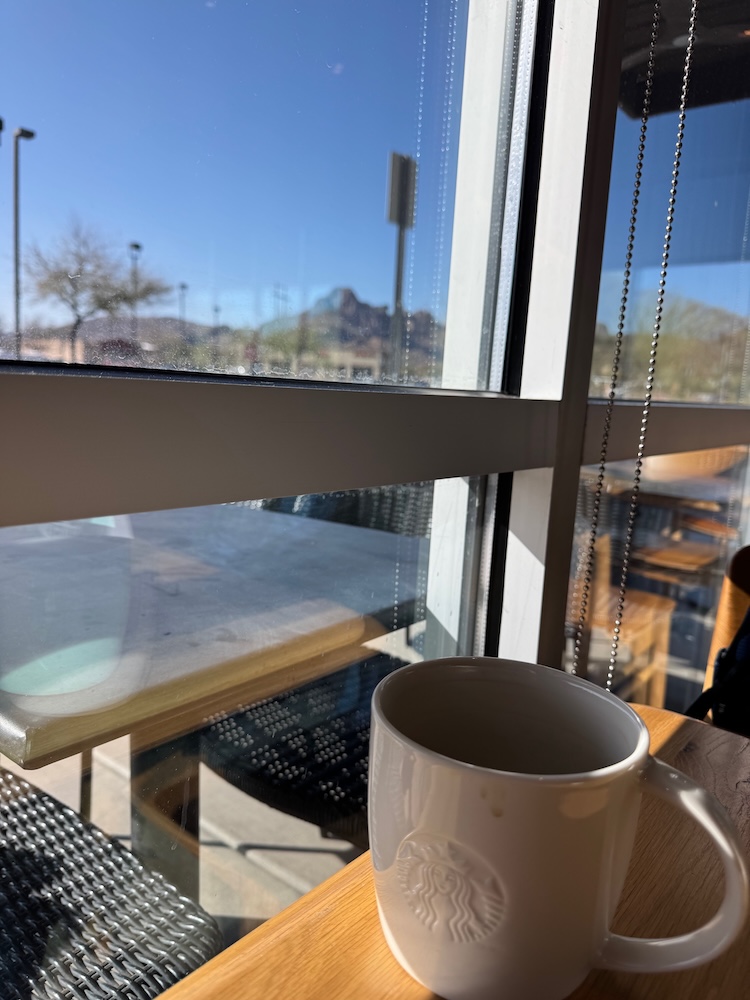
It was a typical afternoon at the Starbucks near Casa Saguaro (the tiny house) in Picture Rocks. I’d settled into a corner table, intent on catching up on writing, near the wide window that overlooks the parking lot. It’s a modest view: a row of sun-bleached cars in the Safeway parking lot, the occasional breeze shifting a paper napkin across the asphalt. But still, it’s a favorite spot. You can see Safford Peak (or, Sombrero Peak to the locals) in the foreground and Panther peak off to the left. You can drink coffee from a ceramic mug. You can breathe.
A woman walked in with her son. She gave him a soft instruction—“go ahead and sit by the windows”—and went off to place their order. Without hesitation, he took the seat directly across from me. I don’t think he noticed me at first. He just started watching the cars pass by. His arms rose and fell in wide arcs, mimicking their motion, his eyes full of wonder. He was, I’d guess, around ten. And in those first few moments, it felt like he and I were in two separate worlds, only incidentally sharing a table.
At one point, he glanced in my direction. I smiled and said, “I like sitting here too.”
We didn’t speak after that, but we sat together. I turned back to my screen, but only partly. I was aware of his presence—not as an interruption, but as a kind of gift. These are the things that shape a day sometimes: the unexpected company of someone delighting in the moment, unfiltered.
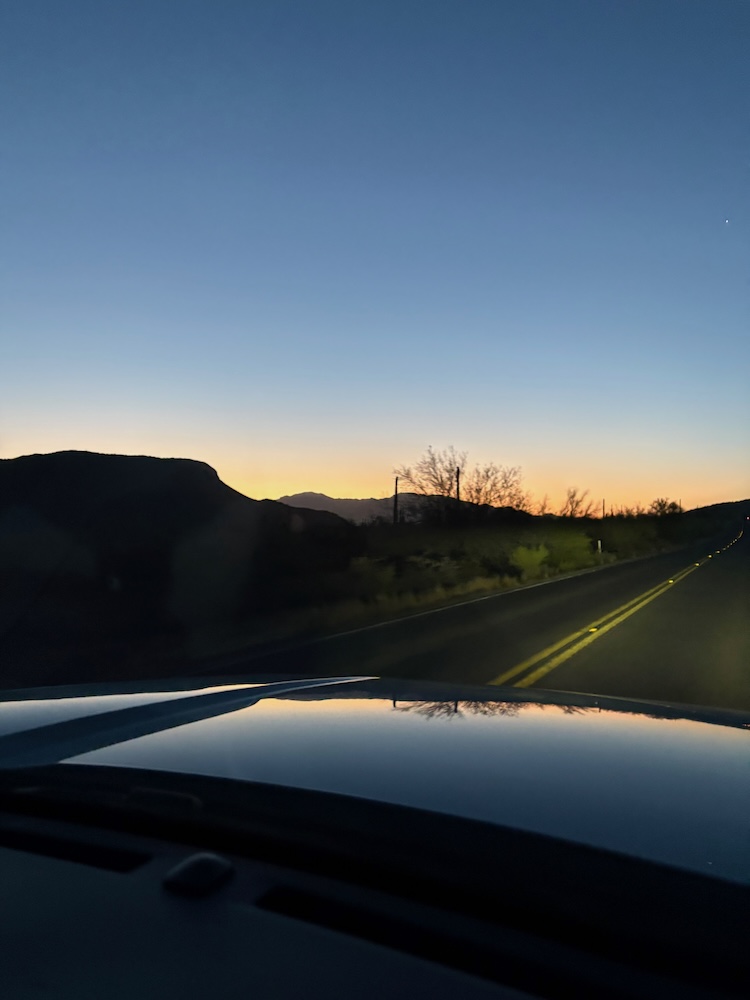
Driving home through Saguaro National Forest that afternoon, I found myself tracing a memory I hadn’t visited in a while. A quiet thread that had started unraveling years ago—my first panic attack.
It gave me pause. Lately, my mind had been full. Tight-chested. A particular flavor of anxiety—quiet but persistent. Not a panic, but a pressure. The kind that says: You should be further along than this.
It brought me back to a long history I don’t often talk about.
There was a time, after my mother died, when I couldn’t sleep. That kind of buzzing, high-alert feeling. A first adult panic attack. I remember walking Third Street with Lori in the middle of the night, trying to calm down. A sense that my body had turned on me—tight chest, racing thoughts, no clear trigger. Trying every strategy—sleep aids, new diets, stricter routines—hoping for a fix.
But as I traced it back further, I realized I’d known that feeling much longer. Back to a weekend trip to Madison, when I had to pull over on the Skyway and figure out how to drive through a panic. Back to a college job where a chest flutter sent me to a cardiologist. Back to asthma attacks as a child—waiting for my mom to return with an adrenaline shot, hoping that relief would come soon
And further still, back to early childhood. Foster care. A crib that moved across the room because I rocked it, alone.
The anxiety wasn’t new. What was new—what is new—is the naming of it. The refusal to push it away. The learning, over time, that even these feelings are part of the pattern. That what begins with tightness can end in breath, and maybe rest.
All that surfaced again, quietly, as I drove through those winding desert roads. Sometimes healing feels like that—an echo that comes back not with panic, but with gentleness. With the sense that, maybe, I’m still learning how to sit beside that child in me. The one who once rocked his crib across the room, trying to self-soothe. The one who needed someone nearby to say, “It’s okay. I like being here too.”
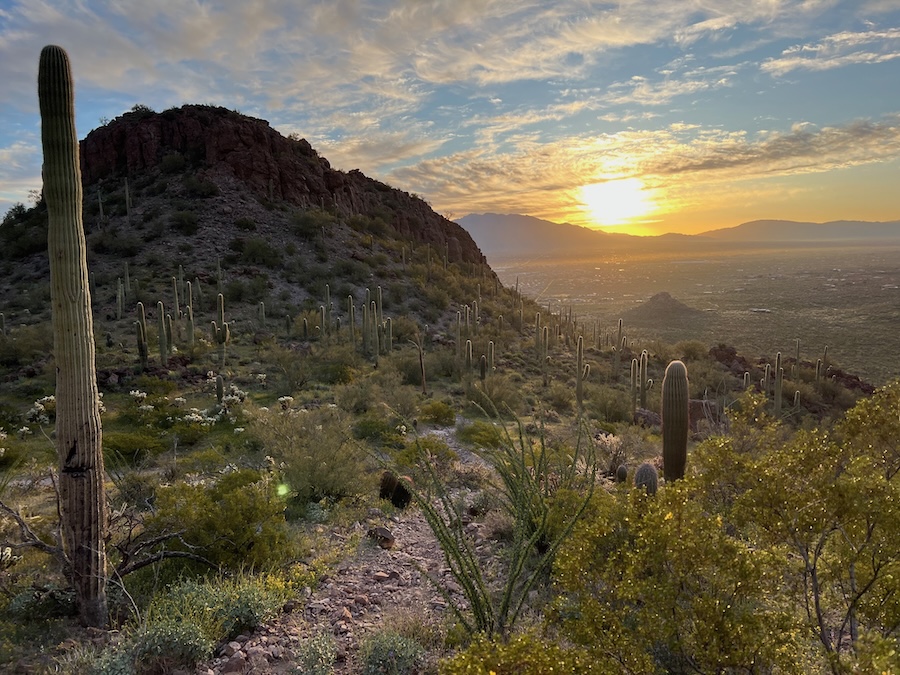
Back at Starbucks, the boy’s mother returned. She glanced around and noticed where her son had settled—still watching the traffic, still beside me. She approached our table with a soft smile and said, “Thank you for being so kind. He just likes to watch the cars.”
Then she added:
“I’ve given up on apologizing. I used to say sorry all the time, but I can’t control this. So now I just say thank you.”
I told her there was no need to thank me—that I liked sitting there too. But I haven’t forgotten her words.
Not sorry.
Thank you.
There’s a quiet power in that shift. A posture of presence. Of grace. And maybe even the beginning of something that looks like peace.

